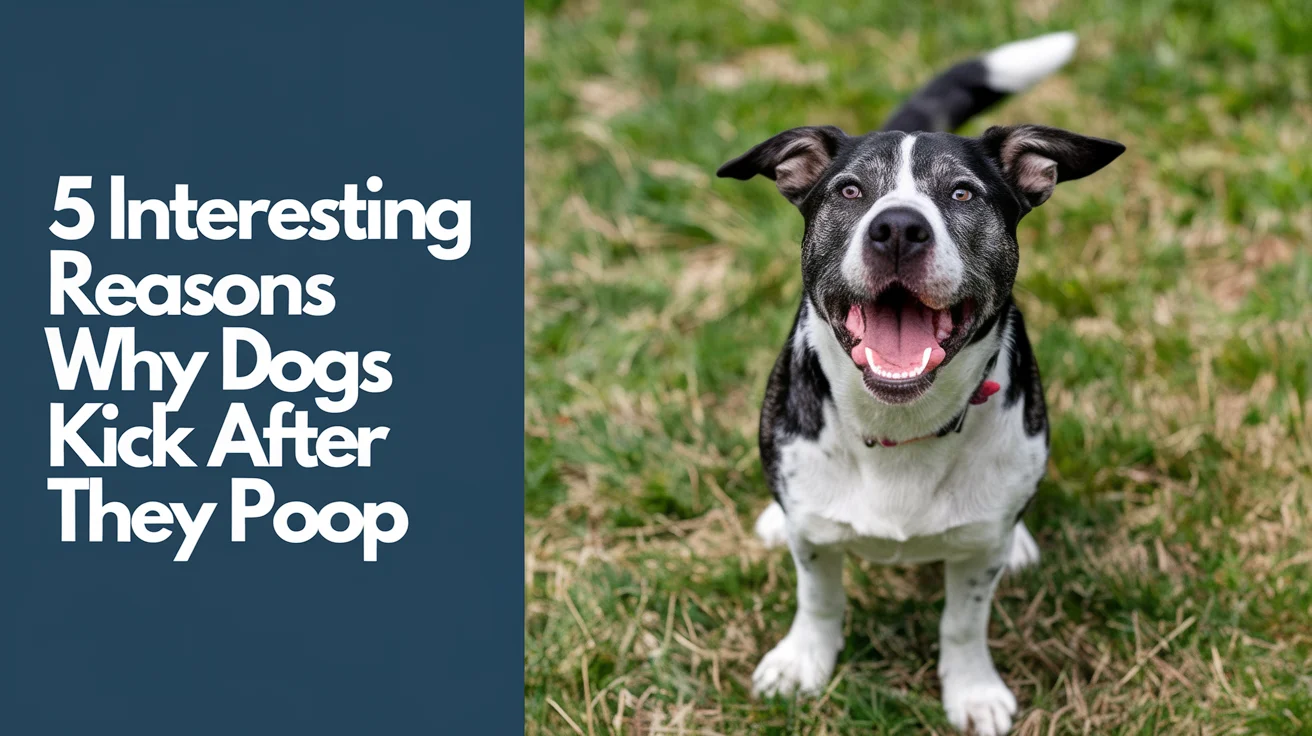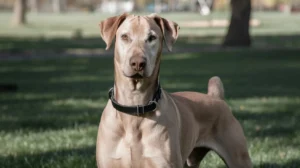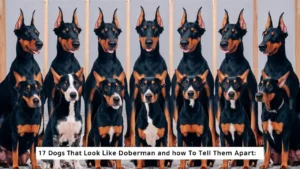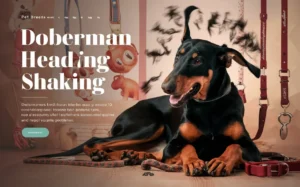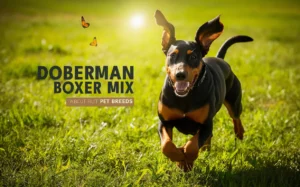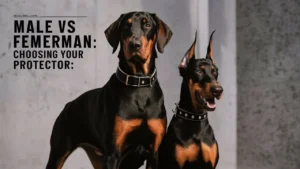If you’re a dog owner, you might have noticed your furry friend kicking their legs after doing their business. This quirky behavior can leave you puzzled, but it’s more than just a cute quirk. In this article, we’ll explore five interesting reasons why dogs kick after they poop, diving deep into the science and instincts behind this behavior.
A Form of Communication 🐾
Dogs communicate in many ways, and kicking after pooping is one of them. This behavior isn’t just a random act; it’s a form of expressing themselves to other animals in their vicinity.
How Dogs Communicate with Other Animals
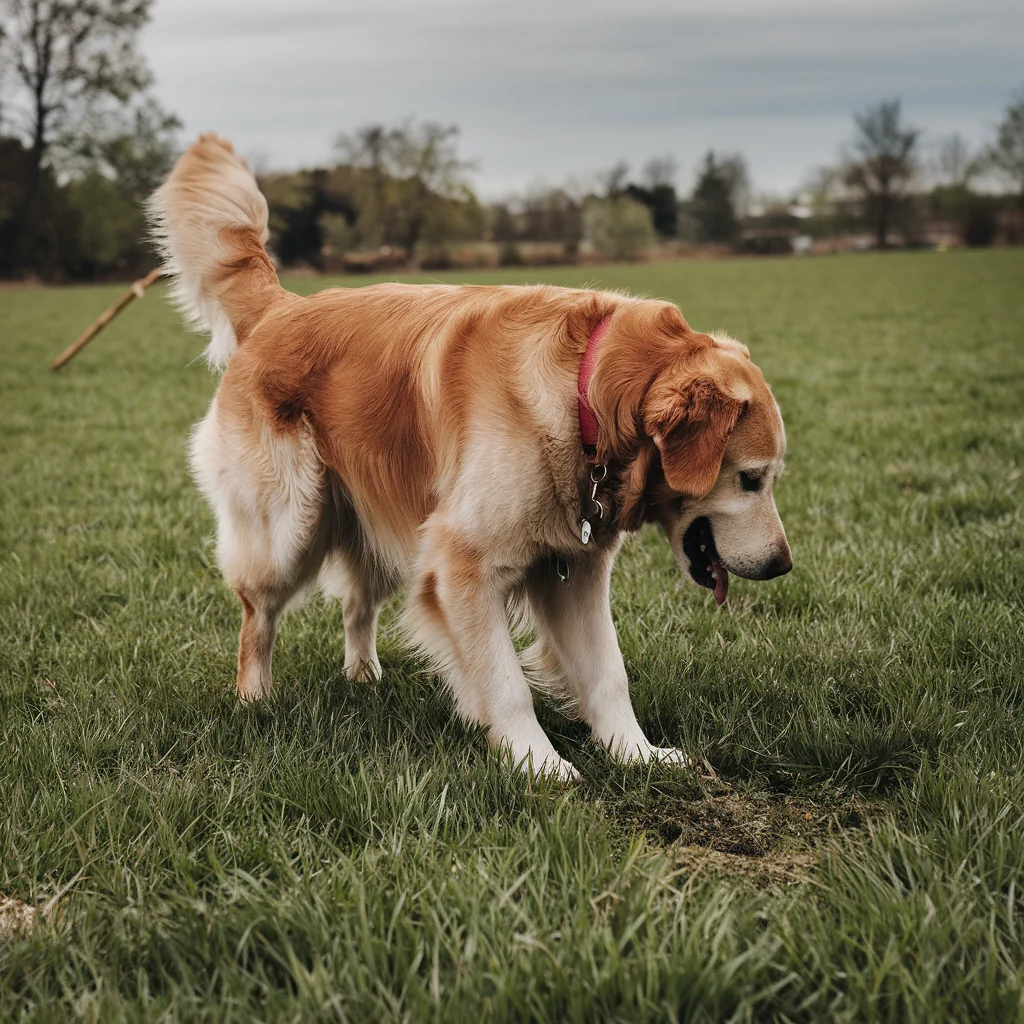
Dogs use a combination of vocalizations, body language, and scent to convey messages. The act of kicking can serve as a signal to other dogs that they’ve claimed their territory.
The Significance of Body Language and Scent
When your dog kicks up dirt or grass after pooping, they aren’t just being playful. This action can release scents from glands located in their paws, marking their territory and sending a message to nearby animals.
Kicking and Scent Glands
A dog’s paws have scent glands that are particularly active. When they kick, they spread their unique scent, letting others know they’ve been there. This is especially significant in areas where multiple dogs may roam.
Marking Territory with Scent 💬
Territory marking is a common instinct among canines. When dogs kick after they poop, they might be reinforcing their claim over a particular area.
The Biological Purpose of Scent Marking
Dogs have an incredible sense of smell, and they rely on this ability to navigate their world. Kicking serves to enhance the scent left behind during pooping, creating a stronger olfactory signal.
The Role of Paw Glands
The glands in a dog’s paws release pheromones, which carry information about their identity, health, and even reproductive status. By kicking, they effectively broadcast these scents, reinforcing their presence in the area.
Breed Variations in Scent Marking
Certain breeds may exhibit more pronounced kicking behavior than others. For instance, scent hounds and terriers often engage in this behavior more frequently due to their strong instinct to mark territory.
Hiding Their Tracks 🦴
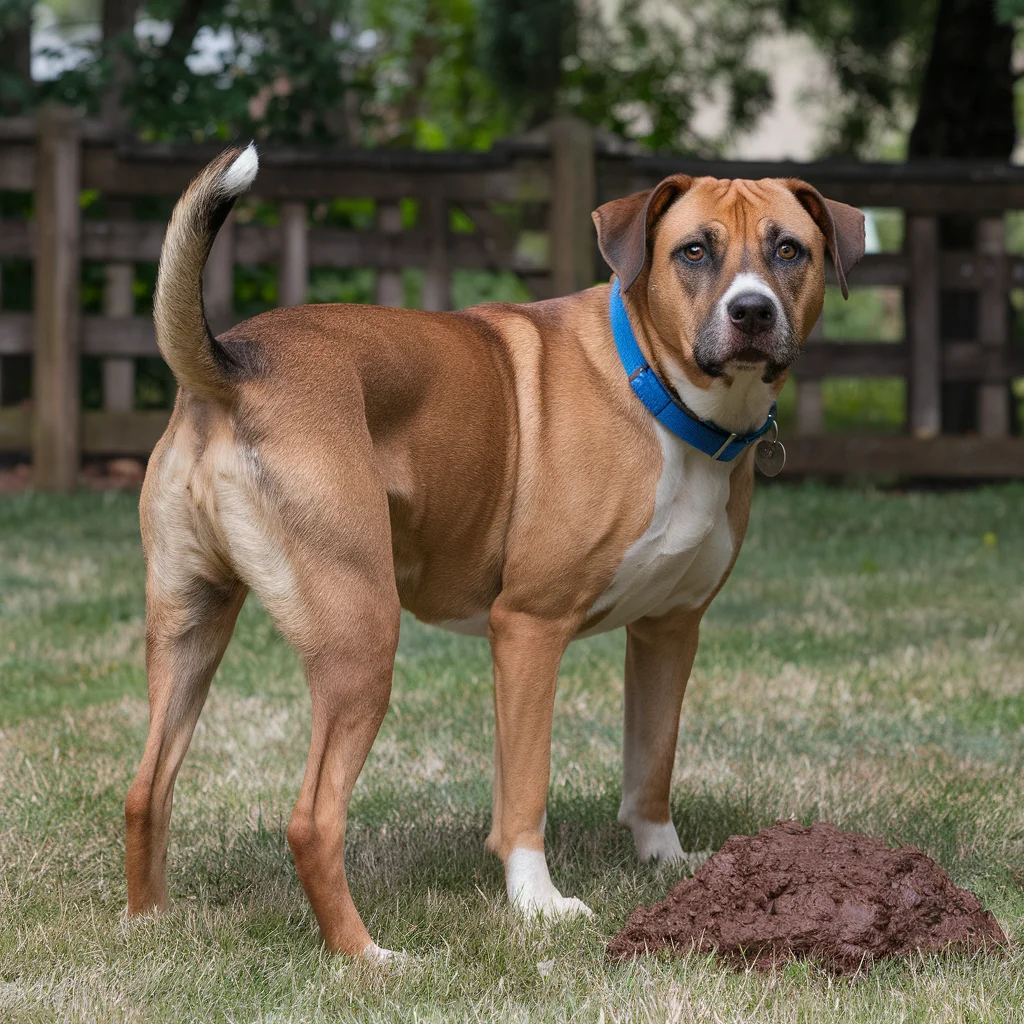
Kicking can also be an instinctual behavior that stems from a dog’s wild ancestry. In the wild, dogs and their relatives, like wolves, would kick to hide their waste, reducing the chances of attracting predators.
The Evolutionary Purpose Behind Camouflaging Waste
In the wild, leaving a scent trail can be dangerous. Kicking dirt or grass over their feces helps to obscure their scent, offering a layer of protection from potential threats.
Wild Dogs and Wolves
Research indicates that wild canines engage in similar behaviors. By kicking dirt or grass, they minimize their scent signature, making it harder for predators to track them. Domestic dogs have inherited this instinct, even if they live in safe environments.
Retaining Instincts in Domestic Dogs
Despite being domesticated, many dogs retain their wild instincts. This behavior can vary based on a dog’s environment and experiences, but it’s fascinating to see how these instincts persist.
Asserting Dominance and Pack Behavior 🐕🦺
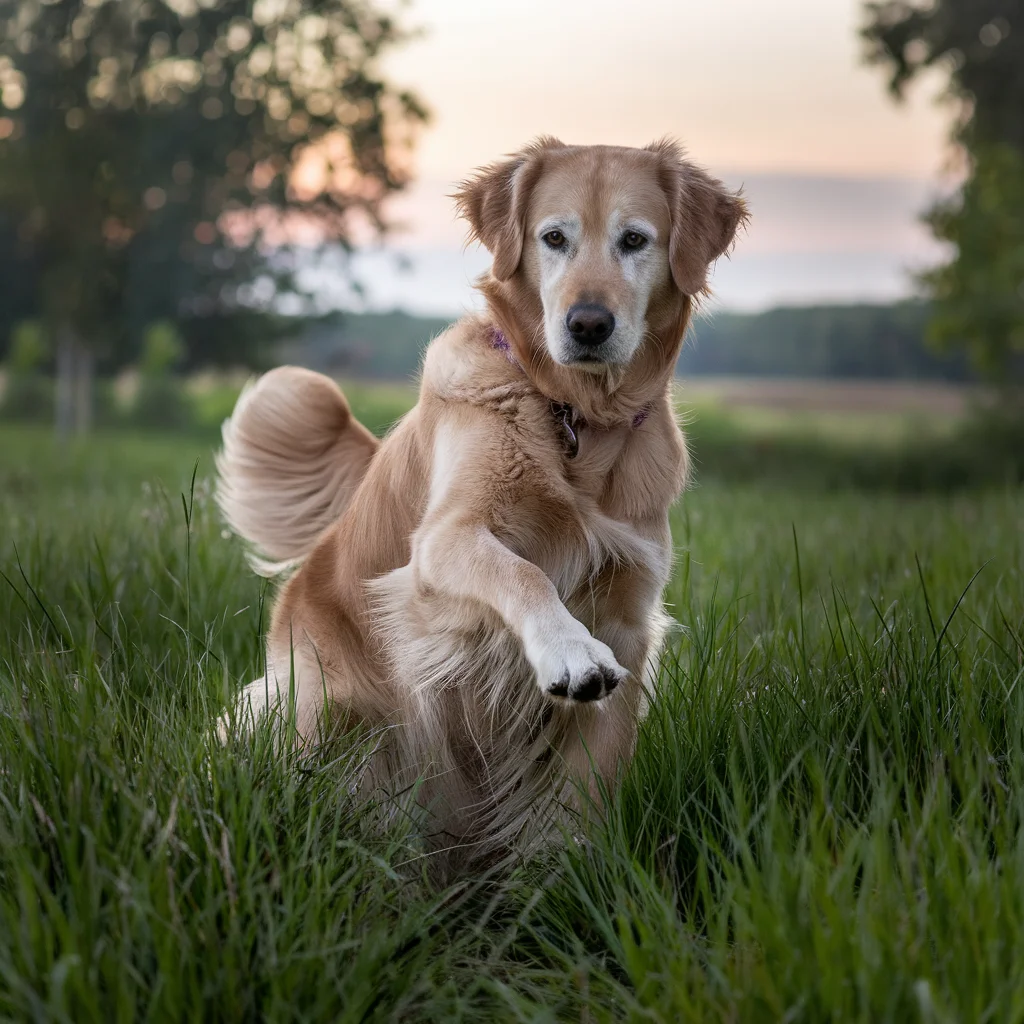
Kicking after pooping can also be linked to social behaviors within a pack. Dogs often display this behavior to assert dominance or communicate their rank among other dogs.
Establishing Presence Within a Pack
In social structures, asserting oneself is vital. Kicking serves as a way for a dog to show their strength and dominance, letting others know they occupy the space.
The Connection Between Kicking and Dominance
Dominant dogs may be more inclined to kick after pooping, using this behavior as a means to communicate their position. This is particularly common in multi-dog households or social settings.
Observing Pack Dynamics
Understanding how your dog interacts with others can provide insight into their kicking behavior. If your dog kicks more around certain dogs, they may be signaling their status or trying to establish boundaries.
Muscle Reflexes and Physical Condition 🦿
Sometimes, the act of kicking can be attributed to physical responses rather than intentional communication.
How Muscle Spasms and Reflexes Cause Kicking
Muscle reflexes can lead to unexpected kicking behavior after pooping. When a dog defecates, the sudden release of pressure can trigger spasms, causing them to kick.
The Impact of Aging and Joint Conditions
As dogs age, they may experience conditions like arthritis or hip dysplasia that can affect their mobility. These health issues may cause kicking to become more pronounced as they attempt to relieve discomfort or engage in a reflexive behavior.
Understanding Joint Pain and Kicking
Kicking can sometimes indicate discomfort. If a dog seems to kick excessively or shows signs of pain, it may be worthwhile to consult a veterinarian to rule out any underlying health issues.
Understanding Canine Genetics and Instincts 🧬
Genetics play a significant role in how dogs behave. Some breeds may be more predisposed to kick after pooping due to their ancestral behaviors.
How Genetics Influence Behavior
Different breeds exhibit various behavioral traits based on their genetic makeup. For instance, dogs bred for hunting or herding may retain stronger instincts related to marking and territory.
Ancestral Traits Passed Down
The kicking behavior can be traced back to their wild ancestors, where communication and territorial marking were vital for survival. Understanding your dog’s breed can provide context for their behaviors.
The Science Behind Circling and Pooping 🔄
Have you ever noticed your dog circling before they poop? This behavior also has roots in instinct and communication.
Why Dogs Circle Before Pooping
Circling can help dogs position themselves in a way that allows them to better scent their surroundings. This instinctive behavior is a way of ensuring their safety before they become vulnerable.
The Impact of Environment on Circling
Factors like unfamiliar territory, the presence of other animals, or even the time of day can influence how and when dogs circle. Understanding these triggers can help you anticipate your dog’s behavior.
Why Dogs Run After They Poop 🚀
You might find your dog bolting after they’ve finished their business. This energetic sprint can have several explanations.
Theories About Running After Pooping
- Celebration: Some dogs simply feel lighter and happier after pooping, leading to playful sprints.
- Relieving Tension: The act of pooping can release pent-up energy, prompting a burst of activity afterward.
- Seeking Approval: Dogs may run to their owners for praise after successfully completing their business.
The Excitement Factor
The excitement of being outside, combined with the relief of pooping, can lead to spontaneous bursts of energy. It’s a joyful release that many dog owners appreciate.
Should You Stop Your Dog From Kicking After Pooping? ❓
Many dog owners wonder if they should intervene when their dog kicks after pooping.
Potential Risks of Allowing or Preventing the Behavior
While kicking is generally harmless, there are instances where it might cause issues. For example, a dog might damage your lawn or create a mess indoors if they kick on the carpet.
Situations Where Intervention Might Be Necessary
If your dog’s kicking becomes excessive or seems to be associated with discomfort, it’s essential to consult a veterinarian. Understanding the underlying reasons can help address the behavior effectively.
How to Manage Destructive Kicking Behavior 🚫
If your dog’s kicking after pooping leads to problems, there are ways to manage it without discouraging natural behavior.
Effective Training Techniques
- Positive Reinforcement: Reward your dog for going to the bathroom in designated areas without excessive kicking.
- Distraction Techniques: Engage your dog in play or commands right after they finish to redirect their energy.
- Controlled Environments: Consider leash walking in areas where they can’t kick excessively or create a mess.
Reinforcement Methods
Using consistent training methods can help your dog understand acceptable behavior without suppressing their instincts entirely.
The Final Word on Poop Kicks
Understanding why dogs kick after they poop can shed light on their behavior and strengthen your bond with your pet. This behavior, rooted in communication, instinct, and genetics, provides a fascinating glimpse into the canine world.
By being aware of the reasons behind this quirky action, you can appreciate your dog’s unique personality while ensuring they remain comfortable and healthy. Whether it’s marking their territory, asserting dominance, or simply enjoying the moment, kicking after pooping is just another way dogs express themselves.
For further insights into dog behavior, consider keeping a journal of your dog’s habits and routines. This can help you identify patterns and better understand their needs.
In the end, a little kicking can go a long way in enhancing the dog-human connection, bringing you both joy and understanding. 🐕✨
